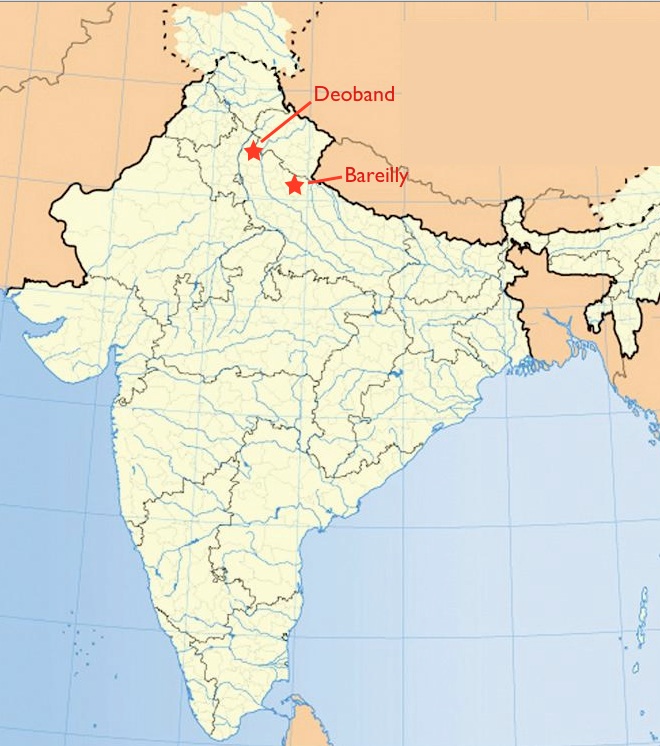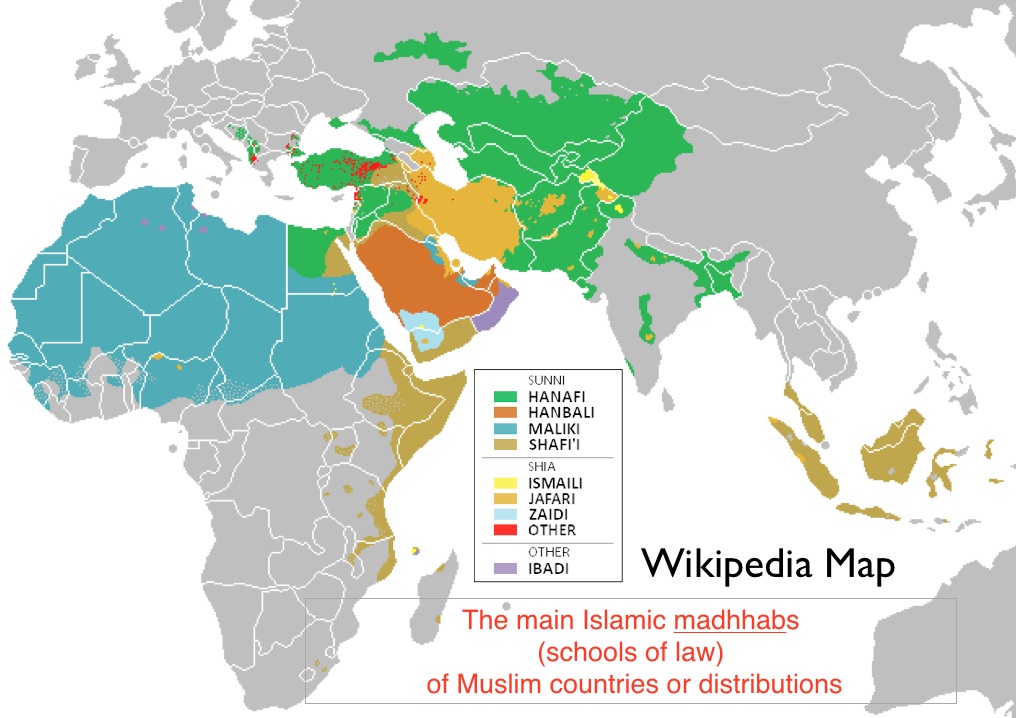Unknown Facts About Barelvi
Wiki Article
Our Barelvi PDFs
Table of ContentsThe Barelvi PDFsNot known Incorrect Statements About Barelvi The smart Trick of Barelvi That Nobody is DiscussingThe Ultimate Guide To Barelvi
Radical Islamist groups in South Asia such as the Taliban are commonly categorized as Wahhabis, coming from the austere, puritanical type of Islam institutionalised in Saudi Arabia. But while the connections in between the Wahhabis as well as the Taliban are tight, the last in fact come from a different branch of the faith.Sunni Islam is separated right into 4 orthodox institutions of law (Madhhabs), each of which is followed in distinctive components of the Muslim globe. A variety of rites and petition kinds additionally differ amongst the schools. As the map over shows, Wahhabism, based in Saudi Arabia, is connected with Hanbali regulation, the strictest type of Islamic jurisprudence.

" Sunni Muslims," Haqqani writes, have discarded their aversion to Wahhabi groups, developing a multitude of traditional Sunnis that accept Wahhabi political and also jihadi concepts without always providing up their ceremonies as well as routines." As is usually noted, Saudi Arabian religious financing has actually aided break down the barriers between both sects.
The Main Principles Of Barelvi
Mapping the 4 common institutions of Sunni Islamic law is fairly easy, although the authors of the Wikipdia map uploaded above should have commendation for doing a specifically good task. The differences that truly issue are not those of Madhhab, yet rather are found amongst less official and much extra current "activities" within Islamic thought and also technique.The Deobandi movement is aligned with Wahhabism and breakthroughs a just as extreme, puritanical interpretation of Islam. The Barelvi activity, on the other hand, defends an extra conventional South Asian variation of the confidence fixated the methods of Sufi necromancy. In India as well as especially Pakistan, tensions between the 2 groups can be extreme, occasionally verging on open war.
As just recently reported in the, "When the Taliban took control of Buner in April 2009, they initially besieged Pir Baba's temple. Taliban leader Fateh Khan claimed it Related Site was because the place was a hub of 'infidelity as well as idolatry.'" Because of this, numerous Sufi temples are now greatly protected by Pakistani security forces.
One can, nonetheless, quickly depict their area of origin, as both motions are named for communities in northern India: Deoband and also Bareilli. Although radical Deobandi teams are most closely linked with Pakistan and also Afghanistan, the activity's intellectual as well as spiritual heart is still the Indian city of Deoband. Its Darul Uloom Deoband is deemed to be the 2nd largest madrasah (spiritual institution) in the Sunni Muslim globe, complying with just Al-Ahzar in Cairo.
3 Easy Facts About Barelvi Described
Firm numbers are impossible to find, a lot of professionals preserve that Barelvis dramatically out-number Deobandis not simply among Indian Muslims but in Pakistan. In Pakistan, however, Deobandis have been progressing of late, as well as Barelvis pulling away. According to one price quote, "some 15 percent of Pakistan's Sunni Muslims would consider themselves Deobandi, as well as some 60 percent remain in the Barelvi custom.Early Deobandi leaders were click to find out more troubled by the victory of British manifest destiny and English-language education and learning, which they looked for to deal with by detoxifying their religion, removing magical methods as well as various other innovations that they considered as in contrast to the belief (Barelvi). One of the most hardline Deobandis pertained to regard Barelvis, along with Shiites, as non-Muslim opponents deserving of assault.
explanation Deobandi reasoning is as well standard to be patriotic, regarding the neighborhood of the faithful, not the modern-day nation-state, as the correct Quranic political car. Most Deobandi scholars declined the dividing of British India in 1947, liking to look for the spread of Islam in an undivided India. The concept of Pakistan, moreover, was initially accepted by Muslim groups hated by the hardline Deobandis (Barelvi).
As an outcome, the Pakistani federal government significantly drifted in the direction of the extreme Deobandi movement. The connection, nevertheless, is a two-edged sword for modern-day Pakistan, as the Deobandi faithful inevitably have ridicule for nationwide identities and boundaries.
How Barelvi can Save You Time, Stress, and Money.
Doubters link it to terrorist companies; the Taliban, after all, sprang out of Deobandi madrasahs in northeastern Pakistan, as did a number of various other violence-prone organizations. Shocking fatwas (religious judgments) do not help its online reputation (Barelvi). In May 2010, a mandate that females can not function for wages shocked mainstream Muslim opinion worldwide.

As Abedin writes: On the question of supposed Wahabism I place it to Madrassi that many doubters of the Deoband seminary claim that Deobandi ideas are simply a little action away from major Wahabism. In response the deputy Vice Chancellor makes a clear separation in between both colleges of thought, before adding that if we take into consideration the Wahabis and also the Barelvis as two extremes, the Deobandis occupy the centre ground in that continuum.
Report this wiki page